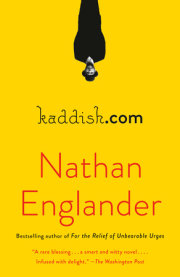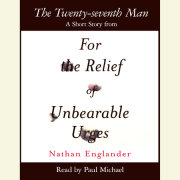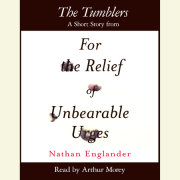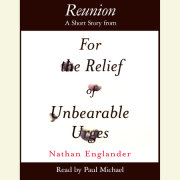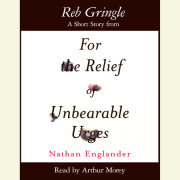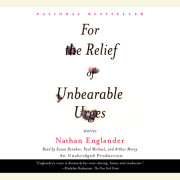2014, Gaza Border (Israeli side)
It’s never about you. Neither attack, nor counterattack. Not the three boys kidnapped, surely dead, or the child murdered in the forest, burned alive.
Sitting still in a chair outside your rented cottage, you wait for the click of your tea water come to boil. You shift a foot, and, at sight of you, a lizard turns the color of the sand.
Across the country, the soldiers scrabble through the South Hebron Hills. They crawl about, hunting the bodies, turning stones. And here, beyond the fences, the Gazans strip the markets bare; dutifully, they run their taps, filling bucket and bowl.
It is light still, bright still. And you know, with the dark, the missiles will scream out from the olive groves and the rooftop blinds, from the hospital parking lots and the pickup-truck beds. The people along the coast will move into secure spaces in cities ever northward, mirroring the missiles’ reach.
And you, you will stay in your chair, and sip your tea, and watch the arc of the fiery tails as they curl overhead. Then will come the sirens and the burst and spark of countermeasure when the batteries hit their mark. So close is your roost that your only worry is ineptitude, if the fighters on either side fire short. This rattle and boom is as of yet nothing but the sound of the two nations ramping up to the inevitable war.
This time, as with every time, when the fighting starts it will be more terrible than the fight that came before. Always it is the worst, the most violent, the least restrained, a steady escalation. The singular rule.
And once the invasion begins? There’s no knowing how and when, or even if, the bloodshed will ever end. Only that both sides will battle for justice, killing each other in the name of those freshly killed, honoring the men who died avenging those who, before them, died avenging.
Because of all this, you understand that your own thoughts are unseemly. Your concerns outweighed and of no matter.
Is it your boy gone missing? Is it your son burned alive? No. No, it’s not. And unless that’s your soldier son sleeping alongside his tank at the border, your masked fighter, outgunned and unprotected, manning the Qassams that whistle through the night, then we expect you will not wallow and will not mourn. You are to take your daily disappointments, your unmet expectations and private catastrophes, and know that they are worthy of shame.
Of course, you do know this and have accepted it. At least, this is what you tell yourself, as a bird you cannot name swings low by your ear. It ends its glide and then pumps its wings.
In the silence that the bird breaks, you hear the sound of feather moving against feather during flight—a wonder. You turn your head to follow its path, shielding your eyes from the sun.
Sitting there by your tiny cottage, you squint and consider your own astonishing stupidity, your brutal obstinacy, your resistance to giving up your own unique and abiding want.
As the water gives off its audible roil and the kettle makes its click, you get up, telling yourself: You do not matter. Let it—let him—finally go.
But the imperative does not stick, and it seems that you will forge ahead with your truly hopeless undertaking. Until the right moment arises, until you get your lover’s secret signal, you will, in the face of the endless, menacing unknowns, hold fast.
And to that inventory of silent surrender that this—that any—war demands, you’ve decided there is one loss for you, too large. A sacrifice you find yourself unwilling to make. It’s a personal privation you can’t stomach and will no longer accept. Let the soldiers soldier on and the civilians bear their burdens. But for you, you simply won’t have it. You will not brook your broken heart.
2014, Black Site (Negev Desert)
Though they both know every millimeter of the cell in which they sit, every scratch in the cinder block, every factory-mixed fleck in the tile, the guard points back over his shoulder at the camera mounted above the door, encased in its casino-style tamperproof opaque dome, fixed there looking as innocuous as a big glass marble.
There is an identical camera on the opposite wall, above the head of the prisoner’s single bed. That one is aimed through the Plexiglas door to the toilet and shower and also covers the thin metal shelf, with its books and bubblegum and English-language magazines (too wide for it), a cache representing the very height of the privileges the prisoner has acquired from the guard over the years.
A third camera is screwed in over the prisoner’s sliver of an archer’s window, watching—from a different vantage—the two other cameras that watch it in return. The window-wall faces the one the bed is pushed up against, the only one without its own source of surveillance. The guard always felt that maybe that wall was left blank because a fourth feed would constitute overkill to the overkill, as the window-wall camera alone, with its bird’s-eye view shot through a fisheye lens, has every angle of that cell covered. With the other two units, every movement of the prisoner’s life is recorded in triplicate—except for when he’s in the bathroom, which, unseen by the camera over the door, its single blind spot, is recorded but twice.
Recorded and time-stamped and dated, marked with the camera number and the nickname for the cell, “The Peach Pit”—which the guard chose for no good reason other than he was home smoking a joint and reading the Hebrew subtitles of a Beverly Hills 90210 rerun with the sound turned off when he got the call for the job.
Pointing up at that camera, the guard explains to the prisoner what it looks like to the guard when the cell is pitch dark, when the prisoner wishes he could feel that he was alone with his thoughts, when he wishes it could be for him pure, true night.
It is a shock for the prisoner, since, in the dozen years since they’d been hitched, the cameras, and the guard’s view behind them, are the one thing, in all their searching, probing, absolutely endless conversations, that they never, ever discussed.
In response, the prisoner cocks his head and looks back at his guard most quizzically, for he knows his keeper would not be breaking his teeth over this for nothing. And the guard knows some things too. He knows that he himself is not as educated as his fancy fucking charge, and that his gift for metaphors is maybe not the strongest, though he’s really been trying to use one as a way to soften things up, as a way to maybe take stock of their time together and then use it as a bridge to some very upsetting news—upsetting even to a disappeared, nameless American confined to a cell that doesn’t, on any written record, exist.
That is, it is bad news with some bite.
In sharing the terrible news—a revelation for which the guard is in no way at fault—the guard will also be forced to share what he would call some fashlot, and what the prisoner would call “mitigating factors,” that would color the story and reflect poorly on the guard, the prisoner’s trusted—and only—friend. It might rightly jeopardize a relationship they’ve both treasured, in what they both understood to be a very Stockholm-syndrome kind of way, a relationship Prisoner Z liked to call “Patty Hearstish,” a reference the guard had been compelled to look up.
In his own defense, as relates to the complication he hasn’t yet copped to, the guard has only been trying to protect Prisoner Z this whole time. It was the very literal definition of his job; his title was the action itself. He’s been guarding Prisoner Z in more ways than the prisoner could understand.
How, oh how, had it come to this! The guard recalls the first time he sat down in front of his three plastic-shelled deep-backed monitors—glowing; his own little triptych set up in front of him, with which to observe his secret ward. The screens were set up with one dead center, the other two touching and tilted in toward him a hair, each offering a different singular monochromatic perspective from which to watch the exact same nothingness going on in the cell. The way those monitors were angled, and feeling his own face lit in that blue-gray light, it reminded him of the way his mother used to hold a silver cardboard reflector under her chin to catch the sun by the sea, his mother, who would plop down in a beach chair and roll up her sleeves but still wore her modest skirt and her sandals buckled tight around her stockings.
It was she who had, way back in 2002, done him the favor of trapping him in this miserable bind. He’d screened her calls to his mobile and only answered the house phone—that is, her phone, the one his mother paid for—when she’d kept on yelling over the answering machine that she’d refused to abandon, though he’d begged her to switch to voice mail like everyone else.
It wasn’t during a 90210 rerun that she’d rung him, but right in the middle of a show he couldn’t bear to have interrupted. He was busy playing along at home with the British version of The Weakest Link, at which he was quite excellent, only ever stumped by the super-easy throwaway questions, distinctly British in nature, making him feel bitterly that—in the unfairness of geography and the misfortune of having been born into the armpit of the Levant—he was inevitably doomed to fail.
Copyright © 2017 by Nathan Englander. All rights reserved. No part of this excerpt may be reproduced or reprinted without permission in writing from the publisher.































































































